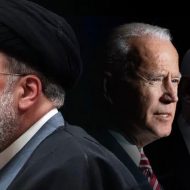Elections will take place in Brazil on October 7th. People will choose the president and vice-president of Brazil, as well as the members of the National congress of Brazil, governors, vice governors and the state legislature. 13 candidates are fighting for the seat: if no candidate receives an absolute majority in the first round, a second round will take place on October 28th.
Problems in the country
Brazil, which has the largest economy in Latin America, is in a real crisis situation. On the one hand, GDP indicators show only about 1.6 percent growth, there is high inflation (4.2 in August) and a growing budget deficit. There has also been a spike in material inequality, and a surge in crime (more than 60 thousand murders a year), along with nearly 13 million unemployed.
Even a year after an exit from recession, Brazil continues to fight for survival.
Candidates: Bolsonaro, Haddad and others
13 candidates are competing for the presidency. The duties of president are currently being fulfilled by Michel Temer, who replaced his predecessor after his arrest. Temer is an unpopular figure, who is carrying out instructions to follow a neoliberal course, cutting social programs and relying on the support of businessmen and bankers.
The right-wing candidate Jair Bolsonaro (Social liberal party) and Lula’s successor – Fernando Haddad (Workers party, PT) are the most likely candidates for the office of president.
Both candidates are populists, however, their programs (as well as their ideological views) strongly differ. Bolsonaro, for example, wants to privatize state assets, whereas Haddad wants to increase state subsidies and increase taxes on the rich.
Bolsonaro is attractive for the electorate due to his traditional views on culture and family, whereas Haddad appeals to the masses with his social slogans.
Haddad says that he is the representative of former president Luiz Inácio Lula da Silva, who was arrested on corruption charges, but remains a popular figure in Bazille. “We are going to get back the reins of the country. We need to diminish the taxes on the poor and improve the economy to generate more jobs“, he said.
As the left-wing candidate, Haddad is a supporter of LGBT rights, human rights and women’s movements (like #metoo). In particular, Haddad has accused Bolsonaro of having “psychological problems with women, black and LGBT”.
The candidates have differing views on abortions (Bolsonar is strongly against it) and the fight against drugs (Haddad has suggested commuting penalties for drug possession, in order to not regard such drug charges as a criminal offense, referring to the crowded prisons of Brazil).
At the same time, Bolsonaro is planning to simplify laws for the acquisition and storage of firearms, whereas Haddad wants to complicate this procedure.
Among other applicants for the president’s office are – Ciro Gomes (PDT), Geraldo Alckmin (PDDB), Marina Silva (REDE), Henrique Meirelles (MDB), Alvaro Dias (PODE), Cabo Caiolo (PATRI), Guilherme Boulos (PSOL), Joao Amoedo (NOVO), Joao Vicente Goulart (PPL) and Vera Lucia (PSTU).
According to France Press, 28% of respondents are ready to support Bolsonaro, whereas about 22% support Haddad. However, the election remains very unpredictable, and big upsets are possible.
Some experts are already predicting Bolsonaro’s victory, but others think he could face a similar fate to France’s Marine Le Pen, who succeeded in reaching the second round with Emmanuel Macron, but ultimately failed to defeat him.
Lula’s factor
Haddad’s links with Lula can have both positive and negative effects: on the one hand, Lula remains extremely popular among the population– on the other hand Lula`s movement is tied to corruption scandals. A part of electorate will follow the left candidate, but the other part will prefer a fresh, anti-system figure.
In April, the Federal Supreme Court of Brazil, allegedly in connection with corruption within the semi-public Petrobras company, made the decision to arrest the president of Brazil. The now ex-president had a high probability of winning the upcoming elections, collecting more than a third of votes.
On the eve of his arrest, Lula said that he is “not a person, he is an idea”, hinting at his successor. In August he wrote a letter from jail entitled: “Each of you has to become Lula!”.
Why the West opposes Bolsonaro
It is important to note that Bolsonaro is agitating from the hospital after receiving a knife wound to the stomach on the eve of elections. Last Thursday, he was wounded by a left-wing radical with mental health issues while at a meeting.
The action has had a positive impact on the Bolsonaro campaign: people sympathize with him. Besides, his character is reminiscent of Donald Trump: Bolsonaro is an active Twitter user, and his sons help him a lot in his political career. The Brazilian candidate even uses the same word as Trump to describe the current political culture of Brazil – “the swamp”: “We want to save our lost values and to pull out Brazil from this swamp of violence and corruption”.
Formally, Bolsonaro is the representative of the Social Liberal party (the three principles of the party are – “social conservatism, economic liberalism, and Brazilian nationalism”). Some call him “a populist and a nationalist”, others call him – “a sexist, misogynist and a racist”. He positions himself as an anticommunist.
Meanwhile in the West, liberals, feminists, repesentatives of the LGBTQ community and other proponents of American-style “democracy” naturally oppose Bolsonaro. On the eve of elections, Brazilian women organized a march, just as American feminists had against Trump. Their slogans included the phrase Ele Nao (“Not Him”), and suggested the candidate is a sexist and homophobe.
Why? There are several reasons. Firstly, Bolsonaro opposes abortions. Secondly, he was involved in a scandal where a woman accusing him of “rape” (he answered her saying: “I would never ever rape you because you don’t deserve it, slut”). Thirdly, the candidate openly criticizes LGBTQ people and politics.
Fourthly, Bolsonaro is the only one candidate who openly agitates for religion and the traditional family.
As for his geopolitical views, he wants to reinvigorate Brazil’s relationship with the US, and would obviously find a common language with Trump. In particular, he intends to establish commercial relations with the USA and become closer to Israel.
Bolsonaro is ready to support U.S. appeals for military intervention in Venezuela. He has in the past openly criticized Venezuelan president Nicolás Maduro and his government.
Haddad, in turn, as a follower of Lula, will most likely support Maduro. The president of the Workers Party, Gleisi Hoffman, has openly supported the Venezuelan government.
The Geopolitics of Brazil
Brazil is a key country in Latin America, it is the most populated and economically effective in the region. These elections are a critical point in the country’s destiny –the results of the vote are particularly interesting to the USA. The Trump administration and influential republicans need the support of Brazil in the region – in particular, in regard to Venezuela. The Elections in Brazil will likely define whether Trump has a new ally or a new opponent.
The militaristic Bolsonaro, with his rhetoric of “law and order” is appealing to Trump (Trump has previously praised the rhetoric and policies of Vladimir Putin or Rodrigo Duterte). Experts suppose that Bolsonaro will find a common language with Trump as a populist candidate.
The globalists don’t agree with either Bolsonaro or Haddad: the right-wing candidate will look for direct dialogue with Trump, but not the establishment; left activists have blocked American oil American companies from entering into Brazil (such as ExxonMobil and Chevron), and at the same time, they strengthened communications with China (such as signing a contract with Sinopec). Because of this, western mainstream media criticizes both Bolsonaro and Haddad.
The 2018 elections will, in any event, be a defining moment for the country. Regardless of who wins, if Brazil is able to bring order back to the country, it will become one of the most important emerging markets in 2019, and a strong geopolitical player in region.









Leave a Reply